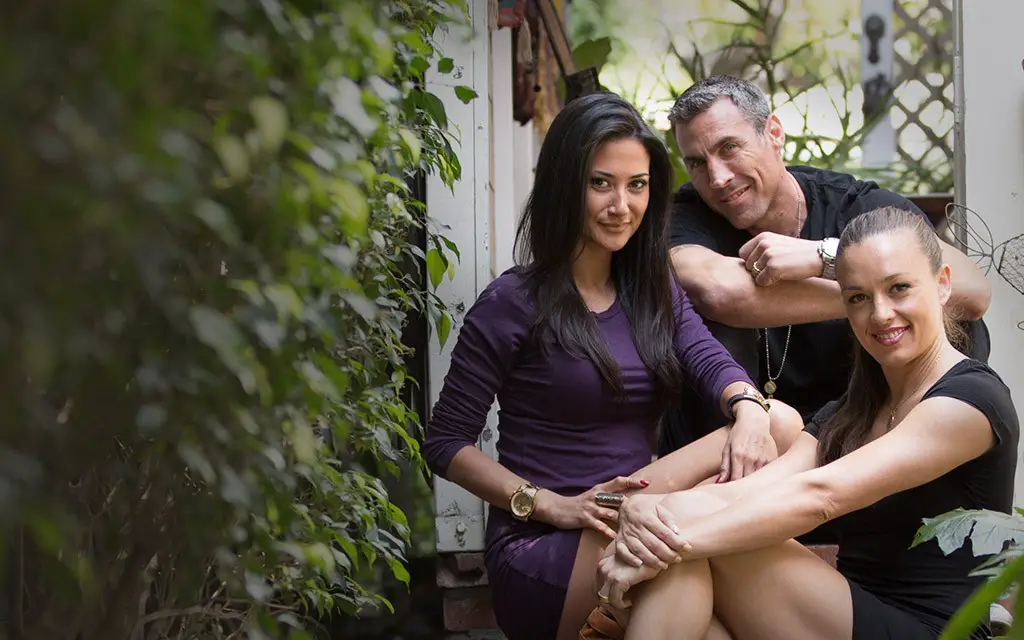Polyamory 101
“I took the time to look up how to spell “douche canoe”(it turns out there’s no strict consensus) because that’s how important I think this point is.”
By Michelle Hy, Portland State University
It was when I was lying on a Montana hillside 500 miles away from home, stupid drunk, that I realized how fucking hard non-monogamy is.
At the age of 19, I was in an “open” relationship and I was not happy. Not only was I a struggling college sophomore majoring in a field I absolutely hated, but I was also trying to make an open relationship—a concept I was excited about, but also woefully naive about—work.
At the risk of sounding melodramatic, my heart was ripped to shreds during this period of three months and I still find myself sinking into depression when triggered about it from time to time. Good times.
However, despite the painful betrayals and harsh miscommunications, the partner I had then is still the partner I have now. Why? Because it’s 2016 and I will take non-monogamy over monogamy any day of the week.
I won’t let inevitable heartbreak keep me from loving how I strive to love: openly and freely. And you might be the same way. You might identify as polyamorous like me or you might identify more with what “Savage Love” columnist Dan Savage calls “monogamish.”
As college students, we’re still doing a lot of soul searching. And if you’re anything like me, you’re still wondering what you’re going to be when you grow up and how you’ll ever figure this relationship muck out.
I’m 23 now, and while I’m still far from any kind of expert with regard to ethical non-monogamy, here are some pretty crucial lessons I’ve learned over the past four years.
Don’t Be a Douche Canoe
I took the time to look up how to spell “douche canoe”(it turns out there’s no strict consensus) because that’s how important I think this point is. While self-care is necessary, if you find yourself getting what you want at the expense of others, you’re a douche canoe. And conversely, anyone who cares for themselves at your physical, emotional or psychological expense is a douche canoe and it might be time to reconsider the shelf life of the relationship.
Non-monogamy may seem morally ambiguous in a culture that churns out Nicholas Sparks fantasies and shames the mere thought of having feelings or sex with someone other than your partner. Because of the shame attached to non-monogamy, all urges of this sort might seem potentially selfish and harmful, but they don’t have to be, which leads us to our next point.
Healthy Communication Is Healthy
In case you haven’t noticed, you can’t read other peoples’ minds nor can they read yours. Not all communication is verbal and everyone has their personal styles of expression, but unless you’ve been with your partners for so long you can identify every expressive look, gesture and tic, some degree of explicitization is always necessary.
As a shy introvert raised in an Asian household, where you’re supposed to just understand social nuances without having to be told like an idiot, this is hard for me. Don’t feel like a failure if you don’t know how to perfectly communicate your needs both accurately and tactfully. If you listen carefully, most people don’t really know how to either.
It can feel grueling because it requires a great deal of vulnerability. Laying your needs and wants out on the table for other people to see potentially opens you up to judgment and shitty treatment. You’re allowed to be scared because it’s scary.
So don’t feel like you have to rush openness with your partner(s). Take your time in establishing more and more comfortable means and forms of communication. The less you feel like you have to hide from your partner(s), the healthier and more sustainable the relationship.
Crushing on that whip-sharp gal in your physics class, but not sure how your partner would feel about that? Ask. Ask with compassion. Ask with the expectation that your partner wants what’s best for you, but also has the right to have their own feelings, too. And if you can’t expect this now or ever, consider going back to the drawing board on that “relationship.”
Always Practice Safe Sex
I have four simple words here: condoms and birth control. When having sex with multiple partners, it’s crucial to make sure you’re protected because your actions can affect everyone you come into sexual contact with.
Don’t spread an STI to someone unwitting. See: “Don’t be a douche canoe.”
The United States is still pretty regressive when it comes to women’s access to birth control, but it can be done. Institutions like Planned Parenthood provide comprehensive services for people wanting to practice safe sex and will often offer medical care at a significant discount or even for free, depending on your income.
And as for condoms, c’mon, they really take no time to put on and can even be integrated into sexy foreplay. The potential awkwardness of taking those two seconds to put on a condom is well worth the significantly reduced risk of unwanted pregnancy or STIs. Remember, it’s not only healthy for you, but everyone else you choose to come into contact with.
Test Early and Test Often
However, even the safest sex play of mice and men can go awry.
Medical appointments can feel stressful and inconvenient in the short run, but getting regularly tested is one of the best ways to be proactive about the health of your relationship. Syphillis, while treatable, is still kind of a bummer. And again, proper health care can be hard to come by in the U.S., but there are options.
If you have health insurance or you’re covered by someone else’s plan, find out if STI testing is covered. It often is. Otherwise, places like Planned Parenthood also offer affordable STI testing and there may be safe, affordable clinics in your area.
Also, it’s worth checking out the services offered on campus. Many colleges don’t ignore the fact that there’s lots of sexual activity—often understandably confused with paranormal activity—going around on campus, so they often provide counseling services, as well as access to basic sexual protection.
I know it seems like a nuisance, but so is showering. You think you’re clean enough until you start getting majorly bitched at by John, Susan, Michael, and anyone else in your polycule—your polyamorous relationship web.
If you had just taken that bit of time out of your life to properly maintain your cleanliness, you wouldn’t be miserably having to justify yourself right now to the people you’ve contaminated with your stink.
Poor metaphor aside, you get the point. It’s better to know early to nip any issues in the bud rather than be stuck fighting off something more advanced, irritating and potentially life-threatening.
You Are Not a Slut
You might find the term “slut” empowering and if so, more power to you. Embrace the shit out of that word. However, it can still be a deeply triggering word for many people. As a non-monogamist, you’ll often find yourself in the uncomfortable position of hiding in a closet when it comes to your personal sexual and romantic proclivities.
It sucks because even though it’s 2016 and we’ve survived the Rapture, the Mayan apocalypse and the recurring horror of the McRib, we as a society are still largely weirded out by non-traditional love.
As a proponent and practitioner of non-monogamy, you will likely encounter the judgments of small-minded simpletons, who find non-monogamy gross, strange or just plain sinful. These people are toxic. As an autonomous being with the right to love and consensually sleep with whomever you like, you are free to remove yourself from the presence of these people.
And often, this means staying in the closet. It’s awful, but there’s no shame in that. I am picky about who I disclose my sexuality to. The people I love and trust deserve to know. The people who can’t handle it just don’t deserve access to that part of me. And the same applies for you.
Just because you’re non-monogamous doesn’t mean you don’t deserve the right to choose the people you share yourself with. And that is probably the most important lesson of all.












